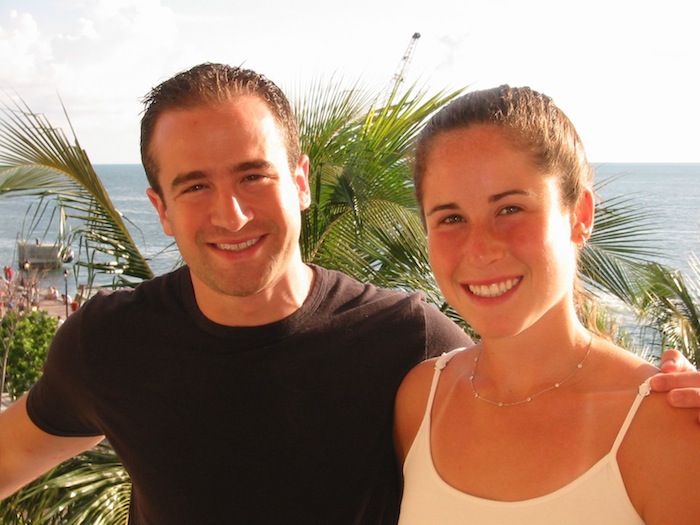
CrowdMed is a crowdsourced medical diagnosis platform. The company participated in the most recent Y Combinator class and launched publicly today at the TEDMED event in Washington, D.C.
[aditude-amp id="flyingcarpet" targeting='{"env":"staging","page_type":"article","post_id":717264,"post_type":"story","post_chan":"none","tags":null,"ai":false,"category":"none","all_categories":"business,entrepreneur,","session":"A"}']“The premise of the wisdom of crowds is that a large group of nonexperts can be very wise once you have the right mechanisms in place to aggregate their collective intelligence,” said founder Jared Heyman in an interview with VentureBeat. “Many people operate under the assumption that crowds are unwieldy, but they can be smarter than expert individuals. If I had to choose between one doctor and one random person on the street for a diagnosis, I would choose the doctor. But if I have to pick between one doctor and hundreds of people with relevant information to share, I would pick the crowd.”
Heyman previously founded an online market research firm called Infosurv, where he experienced the power and accuracy of collective wisdom, and its capability to predict potential outcomes. In 2003, his sister got sick with an undiagnosed medical condition. She spent years going to specialist after specialist, but none of them could figure out what was wrong. By the time she was diagnosed with a rare disease that affects one in 15,000 women, she had seen 16 different doctors and racked up over $100,000 in medical bills.
AI Weekly
The must-read newsletter for AI and Big Data industry written by Khari Johnson, Kyle Wiggers, and Seth Colaner.
Included with VentureBeat Insider and VentureBeat VIP memberships.
“This illness almost killed her — she lost three years of her life,” he said. “Many physicians are hyper-specialized these days and have a hard time seeing things outside of their speciality. This is a problem with the medical system, which meant my sister couldn’t get an accurate diagnosis. I thought there has to be an alternative between Google searches and WebMD and bouncing from doctor to doctor.”
Heyman said that while individuals can only hold so much knowledge in their heads, a crowd can hold an infinite amount. On CrowdMed, people anonymously submit a case into the system, providing information about symptoms, medicine history, demographics, family history, and case reports. Then the community of “medical detectives” (MDs) suggest likely diagnoses and place bets on which outcomes they think are correct. CrowdMed’s patented prediction market technology aggregates feedback from the crowd and distills it down to a probability that can be assigned to different diagnostic suggestions for each patient. There is a leaderboard, so MDs only offer suggestions or place bets when they have something valuable to contribute.
“Our philosophy is that medicine is an individual sport right now, with doctors working in isolation to solve a patients’ case,” Heyman said. “We believe it should be a team sport, with lots of people collaborating to provide accurate diagnoses more quickly at a lower cost. This goes against the grain of how medicine is viewed today, based on the knowledge of experts who go to school for a lot of years and have a prefix before their name.”
The founders have been developing CrowdMed for four years. During the beta period, they built up a community of more than 700 people through word-of-mouth and through partnerships with organizations like Stanford medical school. So far, about 25 cases have gone through the system, and Heyman said they have a “high hit rate.” He gave the example of a child with a rare disease called Pediatric Autoimmune Neuropsychiatric Disorders Associated with Streptococcal Infections, or PANDAS for short. The patient had previously visited over 20 doctors and generated $250,000 in medical bills. Heyman said on CrowdMed, he got the correct diagnosis in a few hours because one of the detectives was familiar with his symptoms. The technology amplified this insight, the community agreed with it, and the solution was assigned the highest probability.
The service costs $199 per case with a full money-back guarantee if the diagnostic suggestions are not satisfying. CrowdMed also collects a $20 refundable deposit when users tell them the final correct diagnosis, to reward the MD community. Heyman said that they are working on a partnership with a major medical journal, and hope that instead of competing with physicians, CrowdMed becomes a tool they themselves use to achieve greater diagnostic success.
[aditude-amp id="medium1" targeting='{"env":"staging","page_type":"article","post_id":717264,"post_type":"story","post_chan":"none","tags":null,"ai":false,"category":"none","all_categories":"business,entrepreneur,","session":"A"}']
Along with its launch, CrowdMed also revealed that it has closed an initial seed round of $1.1 million led by New Enterprsise Associates and including Y Combinator, SV Angel, Andresseen Horowitz, and Greylock Partners.
Photo Credit: CrowdMed
The ability of technology to impact healthcare is one of the topics discussed at HealthBeat, VentureBeat’s upcoming health conference.
[aditude-amp id="medium2" targeting='{"env":"staging","page_type":"article","post_id":717264,"post_type":"story","post_chan":"none","tags":null,"ai":false,"category":"none","all_categories":"business,entrepreneur,","session":"A"}']
VentureBeat's mission is to be a digital town square for technical decision-makers to gain knowledge about transformative enterprise technology and transact. Learn More
